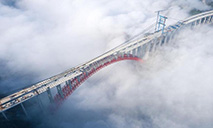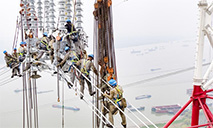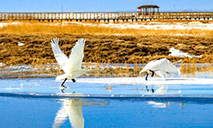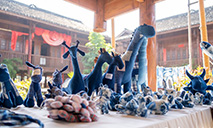Ten Questions for the U.S.: What intentions do the Americans have with their biological labs around the world?
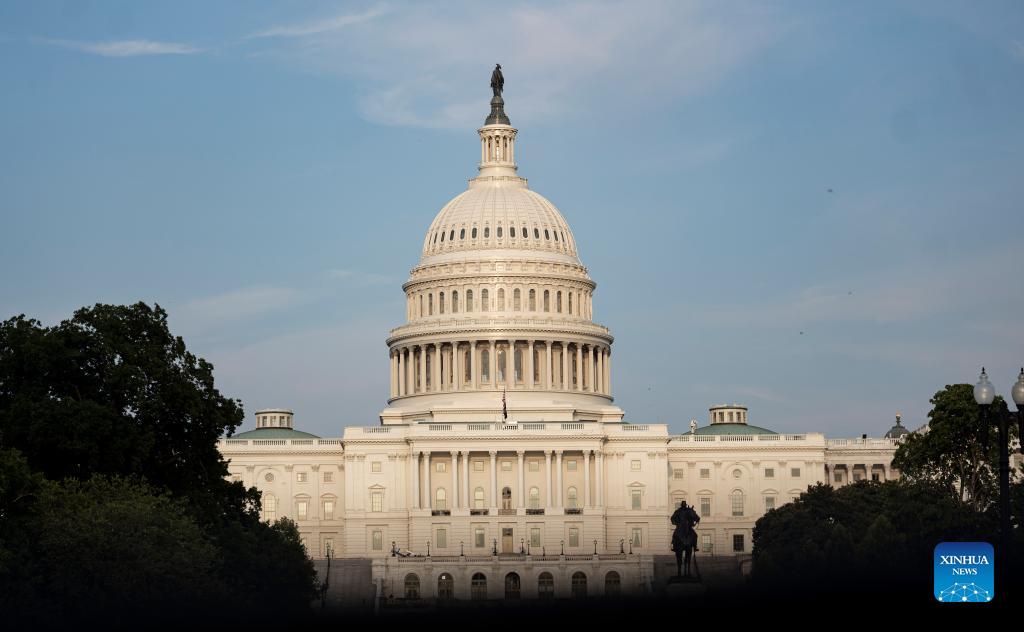
Photo taken on Aug. 26, 2021 shows the Capitol building in Washington, D.C., the United States. (Photo/Xinhua)
1. U.S. State Department spokesperson Ned Price said at a news conference on March 10 that the United States does not operate biological laboratories in Ukraine. On March 8, U.S. Undersecretary of State for Political Affairs Victoria Nuland admitted that “Ukraine has biological research facilities,” and the U.S. is working with the Ukrainians on how they can prevent any of those research materials from falling into the hands of Russian forces should they approach.
Who lied?
2. According to the U.S. submission to the meeting of the state parties to Biological Weapons Convention (BWC) at the end of 2021, the U.S. has cooperation facilities in Ukraine, including 26 labs. However, the U.S. Department of Defense recently said that the U.S. and Ukraine cooperate in 46 labs.
How many biological labs does the U.S. have in Ukraine?
3. A Chinese Foreign Ministry spokesperson pointed out according to open sources, dozens of biological labs in Ukraine operate on the command of the U.S. Department of Defense and the U.S. has invested over $200 million in these labs.
Why is the U.S. spending a lot of manpower and resources on biological experiments in Ukraine? Does the U.S. do it with the best of intentions?
4. Russian officials said that Russia found more than 30 biological labs affiliated with the U.S. on Ukrainian territory and that the relevant items were urgently destroyed, but traces of plague, anthrax and other pathogens were found. When confronted with documents, pictures, physical evidence and other evidence found by Russia in Ukraine, the U.S. was trying to muddle through by simply dismissing the concerns as “disinformation”.
Why doesn’t the U.S. release detailed materials to prove its innocence?
5. According to the 2005 agreement between the U.S. Department of Defense and the Ukrainian side, representatives of the U.S. Department of Defense have the right to participate in all aspects of related activities at facilities in Ukraine. Information marked or designated by the U.S. side as “sensitive” should be withheld from public disclosure by Ukraine.
What sensitive information regarding public health is not allowed to be disclosed?
6. Some U.S. research plans in biological labs in Ukraine lately disclosed by Russia show that the U.S. is trying to obtain means of releasing biological and chemical weapons by experimenting on the relations between migrating birds and the spread of viruses. The evidence also shows that the U.S. and some other Western countries are gathering and transferring in a planned manner biological samples in Ukraine and may have conducted biological research targeting different ethnic populations.
What is the real intention of these plans?
7. Russian Defense Ministry spokesperson Igor Konashenkov said at a news conference on March 10 that experiments with samples of bat coronavirus were carried out by the U.S. in biological labs in Ukraine.
Is this true? Is the research legal, safe and transparent?
8. According to a report by The Rio Times and to Bulgarian investigative journalist Dilyana Gaytandzhieva’s content on Twitter, the American Embassy in Ukraine removed all documents about Pentagon-financed biological labs in Ukraine from its website on Feb. 26. But embassy staff forgot to remove a document showing that the Pentagon is funding two new biological labs in Kyiv and Odesa.
What has the U.S. been hiding from the public by deleting documents at this time?
9. Fort Detrick, a U.S. biological lab, has a notorious record. Moreover, according to what has been submitted by the U.S., the country has 336 biological labs in 30 countries.
Why does the U.S. have so many biological labs around the world and what is the purpose of these labs?
10. For two decades, the U.S. is the only country that opposes the establishment of a verification regime for chemical weapons and biological weapons. The U.S. claimed that it fully abides by the Chemical Weapons Convention and the BWC. But it has been opposing the establishment of a verification regime for the BWC and refusing to accept inspections of its biological facilities inside and outside its borders.
What is the U.S. afraid of? Why not open its biological labs to independent investigation by international experts?
Photos
Related Stories
- Another flight carrying Chinese citizens evacuated from Ukraine arrives safely
- Commentary: West's double-standard coverage of Russia-Ukraine conflict hypocritical, deplorable
- Zelensky urges Germany to provide more support
- Facts about Russia-Ukraine conflict: Erdogan renews proposal to bring Putin, Zelensky together
- U.S., NATO hold key to solving Ukraine crisis: FM spokesperson
Copyright © 2022 People's Daily Online. All Rights Reserved.







